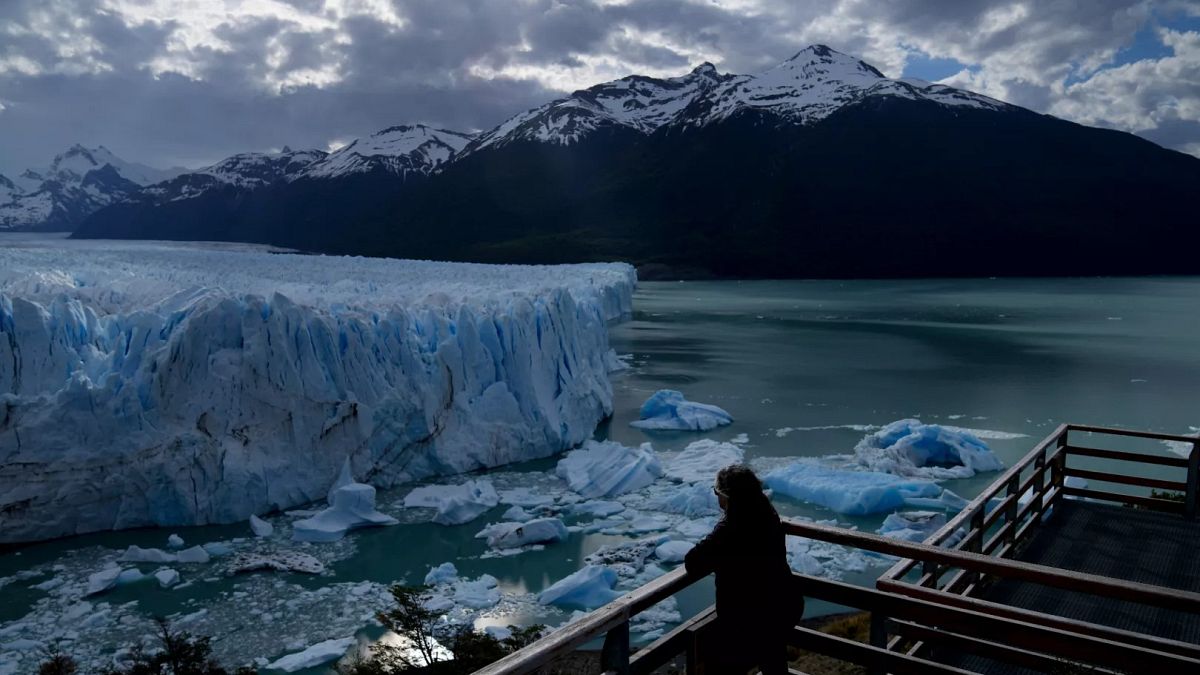By MELINA WALLING with AP
Published on
An iconic Argentinian glacier, long thought one of the few on Earth to be relatively stable, is now undergoing its “most substantial retreat in the past century,” according to new research.
The Perito Moreno Glacier in the Southern Patagonian Ice Field for decades has been wedged securely in a valley. But it’s started losing contact with the bedrock below, causing it to shed more ice as it inches backwards.
It’s a change, illustrated in dramatic time-lapse photos since 2020, that highlights “the fragile balance of one of the most well-known glaciers worldwide,” write the authors of the study in the journal Communications Earth & Environment.
They expect it to retreat several more kilometres in the next few years.
“We believe that the retreat that we are seeing now, and why it is so extreme in terms of values that we can observe, is because it hasn’t been climatically stable for a while now, for over a decade,” said Moritz Koch, a doctoral student at the Friedrich-Alexander University of Erlangen-Nuremberg and one of the study authors.
“Now we see this very delayed response to climate change as it is slowly but surely detaching from this physical pinning point in the central part of the glacier.”
Koch and his team did extensive field work to get the data for their calculations. To measure ice thickness, they flew over the glacier in a helicopter with a radar device suspended beneath. They also used sonar on the lake and satellite information from above.
It is hard to predict when glaciers will fall apart
Every year, hundreds of thousands of people visit Glaciar Perito Moreno, which was declared a UNESCO World Heritage Site in 1981. It’s a site known to “calve” ice chunks that fall into Lake Argentino below.
The basic physics of climate change and glaciers is intuitive: heat melts ice, and global warming means more and faster glacial melting, said Richard Alley, an ice scientist at Pennsylvania State University who was not involved in the study.
But much like a dropped coffee mug, it’s harder to predict when and exactly how they’re going to break apart.
He said people who deny climate change frequently point to anomalies like Perito Moreno, which for a long time wasn’t retreating when most other glaciers were.
Even without climate change, glaciers fluctuate a bit. But if the climate were stable, ordinary accumulation of snow and ice would offset the melting and movement, said Erin Pettit, a glaciologist at Oregon State University who was also not involved in the study.
Why are melting glaciers a problem?
Glacial melting, especially at the poles, matters because it could cause catastrophic sea level rise, harming and displacing people living in coastal and island areas.
While the changes can be locally spectacular in places like Patagonia, Alley said the bigger concern is using studies like this one to understand “what might happen to the big guys” in Antarctica.
But even smaller glaciers have a powerful presence in communities, Pettit said. Ice has carved out many of the landscapes people love today, and they are intimately tied to many cultures around the world. Glaciers can be a source of drinking water or, when they collapse, a destructive force, leaving mudslides in their wake.
“We are losing these little bits of ice everywhere,” Pettit said. “Hopefully we’re slowly gaining more respect for the ice that was here, even if it’s not always there.”

